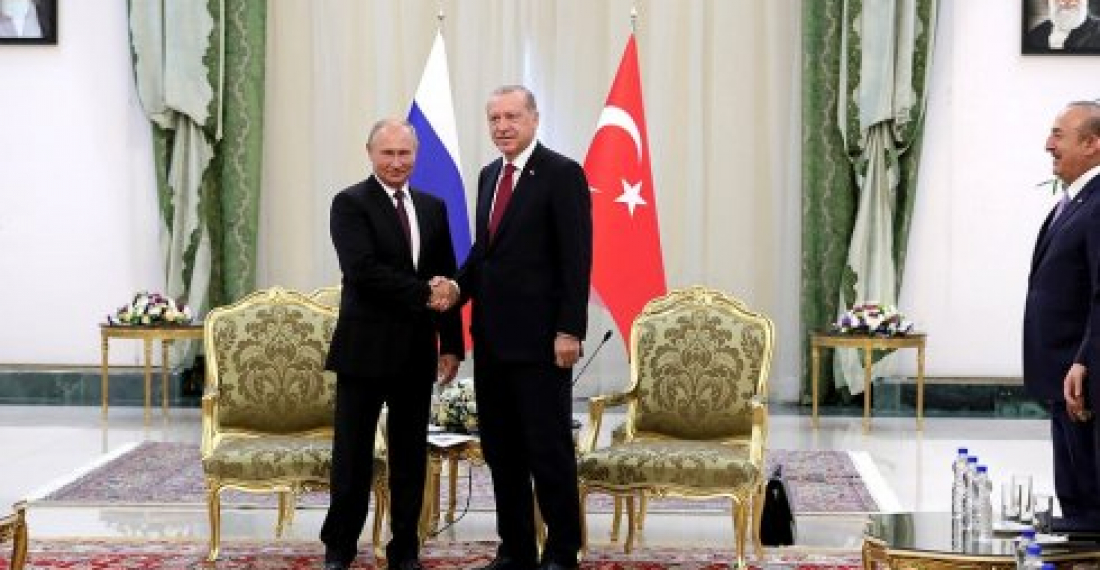The situation in the Syrian province of Idlib is threatening the love-affair between Russia and Turkey that has been blooming for the last two years.
A summit meeting in Tehran over the weekend, which brought together Russia's president Putin, Turkish president Erdogan and Iran's president Rohani, failed to resolve the differences over how to proceed over the future of the province, which remains the only significant part of Syria that is not under the control of the Assad government in Damascus.
Russia and Iran, Assad's allies in the conflict, want to clean the province of the remaining opposition forces, which include elements from the Islamic State group, including al Nusra, but Turkey insists that a frontal attack will cause a major humanitarian disaster and is opposing the move. Groups loyal to Ankara are also bolted up in Idlib. The Tehran summit failed to resolve the issue. Turkish President Recep Tayyip Erdogan insists that Idlib hosts moderate opposition members and any operations there under the pretext of fighting Al-Nusra are unacceptable. Meanwhile, Moscow is calling for separating militants from radicals.
The influential Russian newspaper Nezavisimaya Gazeta, in an article in its Tuesday (11 September) edition, quotes the Director of the Center of Islamic Research at the Institute of Innovative Development, Kirill Semenov, as saying that "the risk of confrontation between Russia and Turkey grows should Moscow, Damascus and Tehran embark on launching harsher steps against Idlib." Semenov told the paper that Turkey's move is aimed at preventing a potential offensive by Assad's forces and their allies. "If Turkey uses its aviation, it will have the upper hand in the Syrian skies", he added.
In this context, the analyst did not rule out that the friction that had erupted in 2015 when Turkey shot down a Russian Su-24 bomber, may be repeated. "But it is noteworthy that Moscow is not seeking any escalation with Turkey and we can say that Russia will try to contain Damascus," Semenov said.
source: commonspace.eu
photo: President Putin of Russia and President Erdogan of Turkey met on the margins of the Tehran summit on 7 September 2018, but could not agree on a way forward in Idlib (picture courtesy of the press office of the president of Russia).







